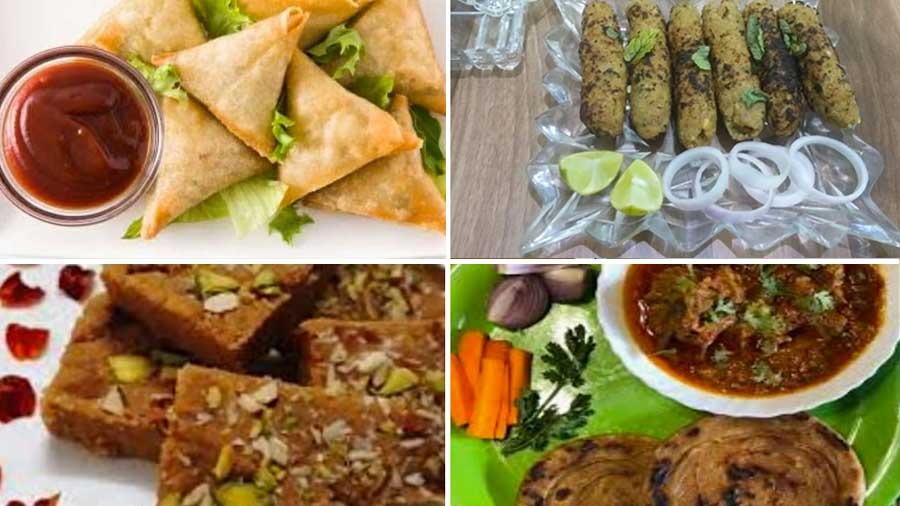Q: The Dawoodi Bohra community has started a cloud kitchen. What was the inspiration for Luqma?
A: There were a number of inspirations. At one level, the priority of our spiritual leader Syedna Mufaddal Saifuddin is to catalyse business opportunities for women within our Bohra community. At another level, there was a growing recognition of a divergence between the quality of Bohra cuisine and its visibility. Most people felt that the appeal and visibility of the cuisine had for long been restricted to within the community, which prevented it from being appreciated by a wider non-Bohra audience. This was a disservice to the community’s culinary heritage. The time had come to take this enduring tradition to the outside world.
There was another factor at play. We believed that our cuisine had become relevant. The cuisine represents a balanced fusion of Indian and Middle Eastern styles, drawn from the rich Bohra multi-cultural background. The cuisine is light and hygienic, increasingly relevant in a health-conscious world. There are some unique Bohra dishes with no equivalents in the non-Bohra world – the Bohra biryani, hareesa naan, cream tikka, kheema patties, kheema cutlets, dabba gosht, laganya seekh, gaakhar-gosht, the Bohra paaya (trotters), triangular Bohra samosas, hand-churned ice cream and khaajla-barfi…. These had been refined over the decades; the time had come to step out to share these with the world.
Why now?
We believe that the present moment in time represents an unusual convergence: of women seeking respect and recognition within society on the basis of their achievements; the role of the e-aggregator does not need to be marketed any longer; deliveries are now simpler through Swiggy; the concept of digital currency has helped reduce cash collection errands; there is a respect for the need of the homemaker to take a day off so that food can be ordered from outside and consumed at home; there is a growing preference for eating at home following the pandemic. There could not have been a more opportune moment for the cloud kitchen to be launched by women of the Bohra community in Kolkata.
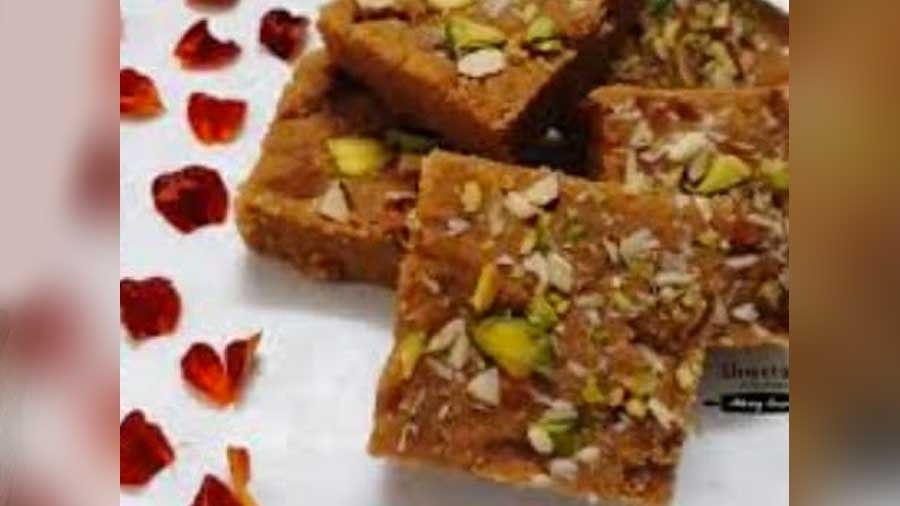
Gol paapri
Was that the only reason for the cloud kitchen initiative?
There were two core reasons — one being the need to create a larger market for Bohri cuisine outside the community, which has already been explained; the other was the need to preserve our community’s culinary heritage. Over the last couple of decades, we found that the traditional Bohra dishes were being gradually replaced by the “chicken chowmein” of the world at our community dinners; we found the traditional sherbet replaced by Sprite; the hand-churned ice cream was being replaced by the branded ice cream brick. We felt that if we lost these dishes, our palates would be poorer. Our ‘Luqma’ (literally means morsel in Urdu) initiative intends to reverse this phenomenon by widening the market for our traditional cuisine and putting it on a periodic weekend menu for the wider world.
What distinctive value does the Bohra cloud kitchen in Kolkata draw from?
The Bohras enjoy a strong ‘jaman’ (food) tradition. The tradition comprises different cuisines for different days of the week; select dishes for specific marriage occasions; a focused range of culinary items for specific occasions in life (birth, marriage, religious occasions and demise); a tradition that extends to how one eats (on a thaal, where eight people sit and eat together), how one sits, what one wears, what one recites when beginning or ending a meal and even the sequence of the dishes.
This tradition has survived the centuries; there were instances of select women specialising in certain dishes and acquiring renown within the community. I use the term ‘within the community’ with deliberation; few people know of this rich culture outside the community. The irony was that our women chefs always possessed the skill but never the confidence to scale up or the presentation finesse required for making boxed deliveries.
This is where our Luqma initiative stepped in. If there is a distinctive value provided by our cloud kitchen, it is in creating a public platform for Bohra cuisine in Kolkata. Today, anyone from within the city can order from us and get the food Swiggy-ed, which was earlier not possible.
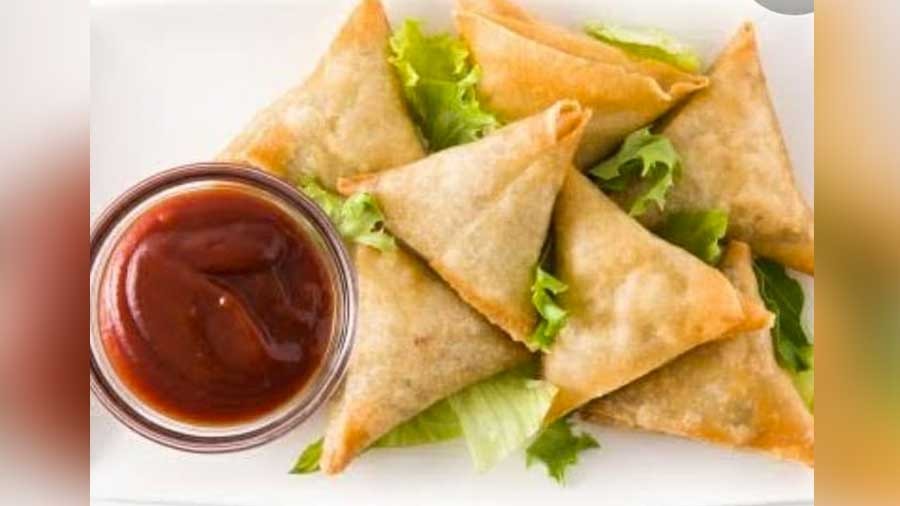
Bohra samosas
How does Luqma work?
Our core Luqma team, comprising eight Bohra women, plays a central role. We design and launch our Sunday menu. We brand the initiative (typefaces and colours are specific). We market the Sunday menu on social media. We aggregate the orders. We farm these orders out to the respective chefs. We ensure compliance with high quality standards. We become a central collection point of the dishes from the respective chefs. We match the food items to the delivery. We arrange for Swiggy delivery by Sunday, 12.30pm. We aggregate the sales inflows. We remit proceeds to the chefs. We collect and relay feedback so that the chefs keep improving their deliverables. Our volunteers collectively invest about 20 person-hours on a Sunday. We charge a 10 per cent commission.
For the chefs who cannot do all this and do not possess a marketing network, this has proved to be a godsend. We leave them to focus on what they are good at, which is cooking. It has not been more than a couple of months of active engagement and we find that volumes have grown for our chefs; some of them have never handled volumes as large as the ones we are providing; the lady who was asked to provide 20 seekh boxes was overwhelmed with the order size. Last week, we put chicken quiche on our menu list; within a few days, the young baker got a repeat order of more than 50 quiche units – at zero marketing cost. Another chef sourced ‘qameeri roti’ (yeast roti) or Yahudi ni roti (Jewish roti), thought to have gone extinct in Kolkata; she provided this as a complement with paaya (trotters). So the cloud kitchen approach is working! The irony is that we have barely scratched the surface.
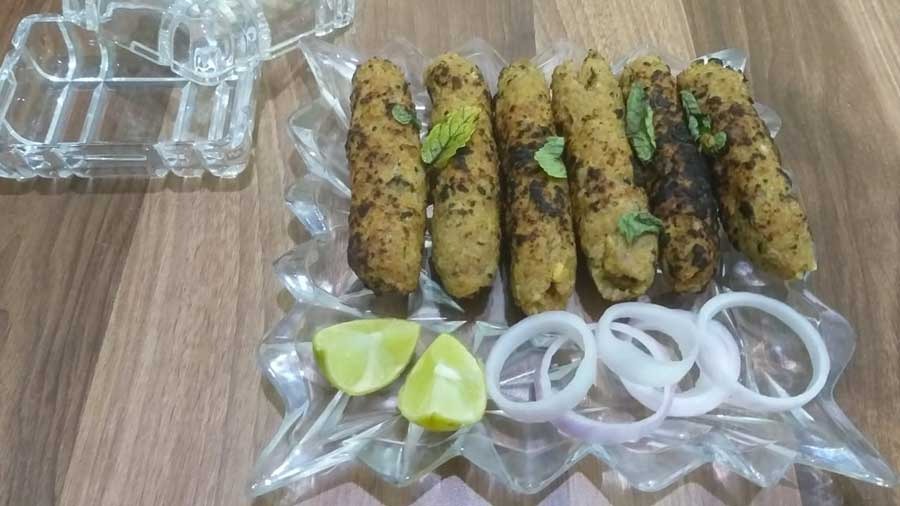
Seekh kebabs
How has your chef collective grown?
When we started, we were less than a handful of chefs; in just three months, the number of active Bohri chefs on our roster has trebled; just this week, three more wanted to enlist; we feel that we could double easily from this point onwards in the next few months.
The remarkable thing is that our chef team comprises women from affluent and not-so-affluent families. What we are realising is that the affluent women are not doing it for the money: they are doing it for the respect it provides them within their domestic environments. This is generating a rub-off effect: the not-so-affluent are discovering a pride of profession and engagement, which is widening the movement faster than we expected. Besides, most such cloud kitchen instances would have concealed the names of the chefs; we have done the reverse and the result is that we are helping build individual and collective brands.
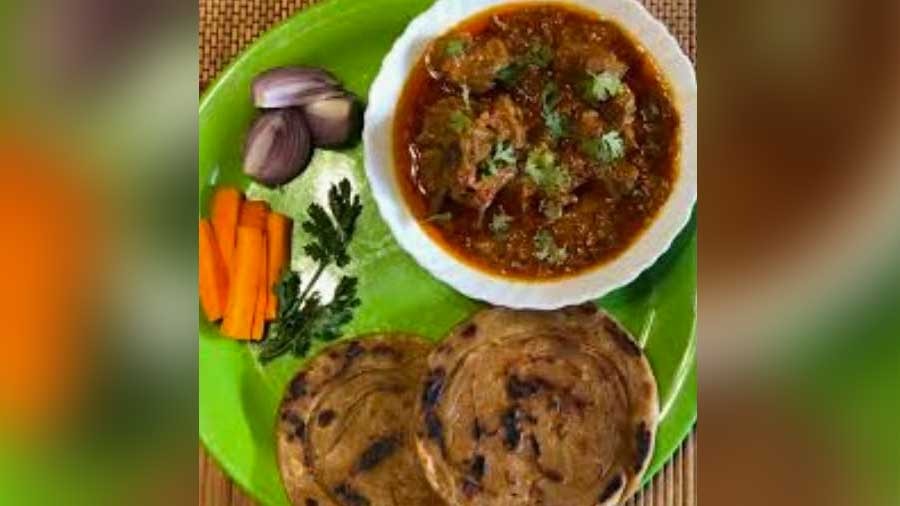
Gaakhar gosht
What is the quality control that goes into an operation like this that is dependent on various kitchens?
One of the most important roles played by the Luqma team is spelling out its QC standards. All the meat we source is halal; the ladies cook themselves so there is personal hands-on supervision; we insist on the use of fresh ingredients and delivery of freshly cooked food; the cooking medium is pure ghee or rice bran oil; we sample the food for taste before it is considered customer-worthy.
Besides, there is a strategic discipline: we have consciously limited our offering to about four to six items per weekly menu, which keeps changing week to week; we could build a wider menu but that would dilute the order quantum; we give a kitchen only one dish to prepare for our menu to prevent them from spreading thin; we rotate the menu items so that more chefs get a chance; we advise our rostered chefs to never refuse an order; we specifically ask our customers to provide feedback on what they did not like.
What have been the challenges?
One, getting it off the ground in the face of cynics who doubted that such a cloud kitchen could ever work. Two, getting the chefs to graduate from the Bohra thaal mindset to catering one person at a time. Three, getting the unaccustomed chefs to enhance their packaging and delivery standards. Four, advising the chefs on how to cost their products (most considered their labour component to be free when costing their products) that extends beyond the conventional material cost-plus basis.
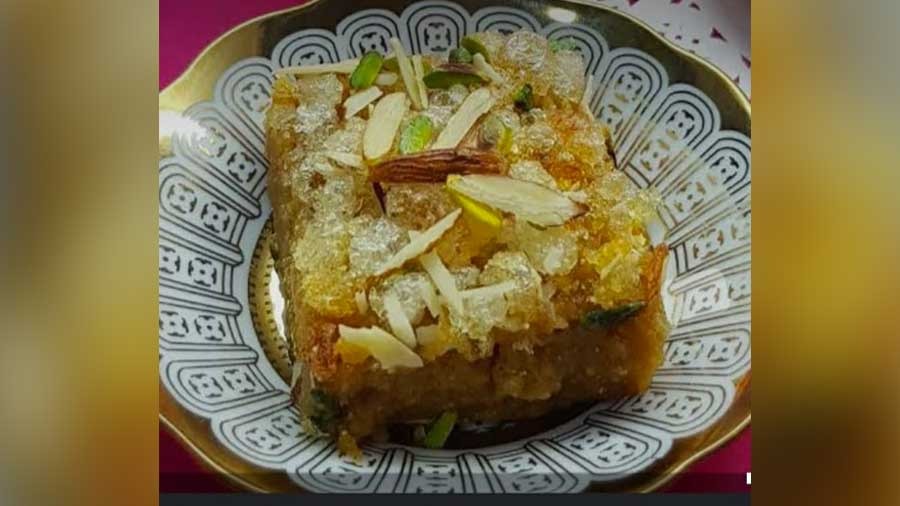
Another sweet delicacy
Where does Luqma go from here?
I think we are onto something that could get bigger – socially and economically. I see a number of families that are refreshingly supportive of what their women are attempting; the husbands drive down to deliver the freshly-cooked food to our collection point on Sunday morning.
Besides, I see this generating a positive economic multiplier impact. The field of commercial chefs within the community will widen; more youngsters will be drawn into kitchen-driven businesses; a number will graduate their residential kitchens to commercial. A couple of good breakthroughs could inspire the optimism that the future of this business lies outside the community; the day is not far when a handful of successes could sustain family incomes and enhance visibility for what we are trying to achieve – not just for women within the community but for women everywhere!
Luqma cuisine can be ordered from 9674439126.
